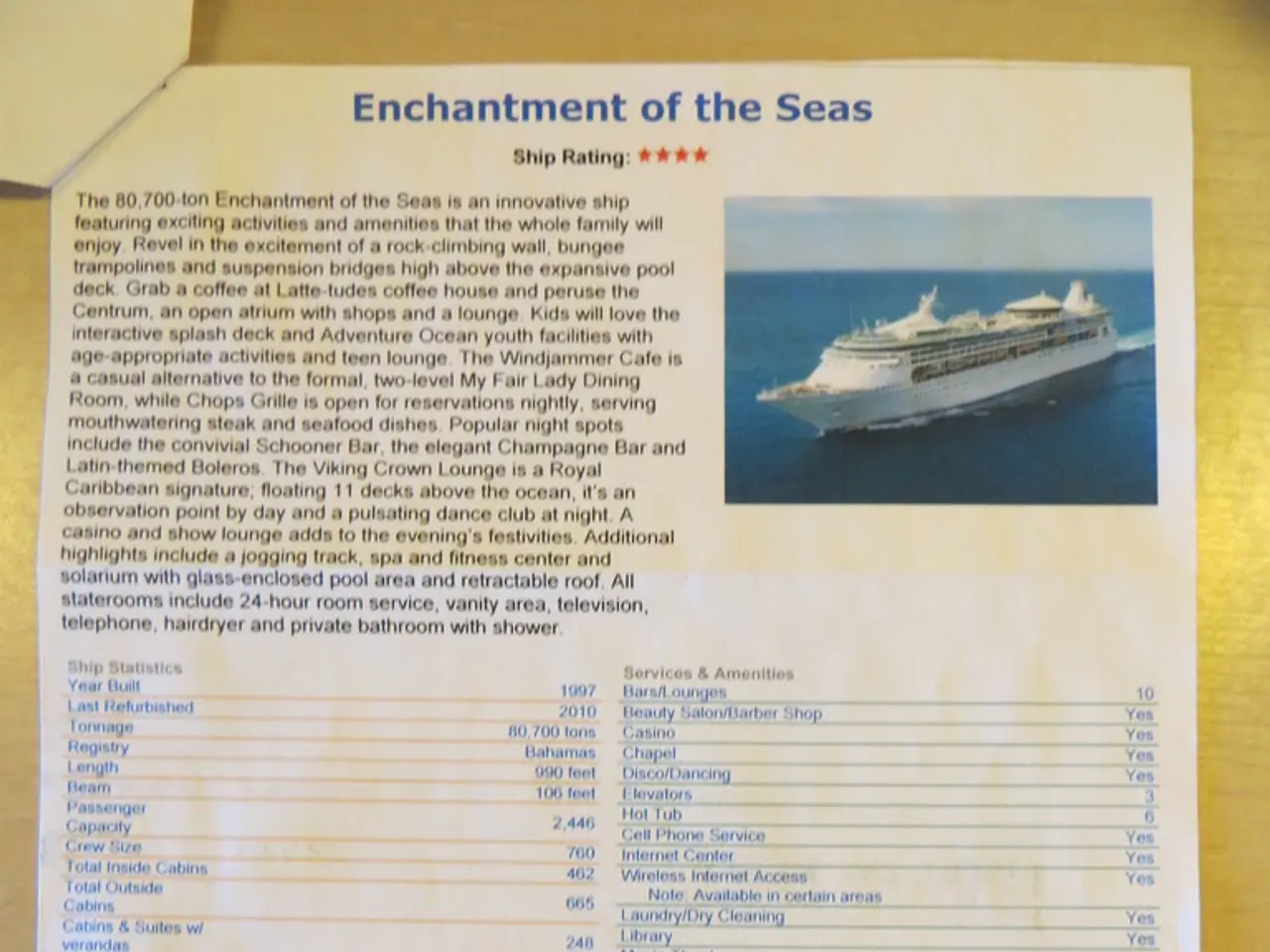Submarine Mishap Attributed to Inadequate Safety Measures and Lack of Supervision according to the Coast Guard
In a shocking turn of events, the U.S. Coast Guard has found OceanGate's safety procedures to be critically flawed and full of glaring disparities between safety protocols and actual practices. This revelation comes in the wake of the Titan submersible disaster that claimed the lives of five individuals, including OceanGate CEO Stockton Rush, in June 2023.
The Marine Board of Investigation (MBI) report, released recently, offers a series of recommendations to strengthen oversight and establish clear regulatory options for operators in the emerging private deep sea expedition industry. These recommendations aim to create a robust regulatory and operational environment that prioritizes passenger safety while allowing responsible growth of the industry.
Enhancing Safety Certification and Regulatory Oversight
One of the key recommendations is to restrict the Oceanographic Research Vessel (ORV) designation for submersibles until they are certified under federal passenger vessel inspection requirements. This move ensures rigorous safety certification. Additionally, the report suggests expanding federal and international regulatory requirements to better cover submersible operations and vessels of novel design, closing critical gaps in the existing maritime safety framework.
The MBI report also emphasizes the need for implementing proper regulatory oversight specifically tailored to submersibles. This includes requiring operators to notify authorities before conducting operations with detailed dive and emergency response plans.
Improving Coordination and Communication
The report also recommends improving coordination and communication among federal agencies and industry groups to enhance safety management and emergency response for submersibles. It suggests joint planning exercises with entities like the U.S. Navy and commercial remotely operated vehicle (ROV) operators to strengthen subsea search and rescue capabilities, especially for deepwater and remote incidents.
Balancing Safety and Innovation
The report provides clear regulatory pathways for innovation, balancing safety and oversight without stifling new design concepts outside the traditional framework.
Addressing Contributing Factors
The report addresses contributing factors like flawed design, inadequate certification, and poor safety culture noted in the OceanGate Titan case. It highlights OceanGate's toxic workplace culture as a significant factor in the disaster, as well as the company's practice of reclassifying submersible passengers as "mission specialists" to bypass regulations on small passenger vessels and designate its subs as oceanic research vessels.
Legal Consequences
The family of Nargeolet has filed a more than $50 million lawsuit accusing OceanGate of gross negligence. The lawsuit follows the disaster that claimed the lives of French explorer Paul-Henri Nargeolet, British adventurer Hamish Harding, Shahzada Dawood, and Suleman Dawood.
Richard Wiese, president of The Explorers Club, stated that the club's responsibility is to ensure that as exploration becomes more accessible, it also becomes safer.
Moving Forward
Jason Neubauer, with the Marine Board of Investigation, stated that the findings will help prevent future tragedies. The Coast Guard's report states that OceanGate ignored safety warnings, design flaws, and crucial oversight. The disaster has led to lawsuits and calls for tighter regulation of the developing private deep sea expedition industry.
In a remarkable turn of events, it was also revealed that Rush submitted a fraudulent sea service letter to the Coast Guard's National Maritime Center to obtain his credentials. This underscores the need for stricter regulations and oversight in the industry.
As the investigation and legal proceedings continue, the industry and regulators alike are grappling with the implications of the Titan disaster. The hope is that the lessons learned from this tragedy will lead to a safer and more responsible future for deep sea exploration.
[1]: Link to the MBI report [2]: Link to OceanGate's response to the report [3]: Link to the Coast Guard's report [4]: Link to the Explorers Club statement [5]: Link to the lawsuit
The Marine Board of Investigation (MBI) report, released recently, also highlights the need for the industry to address contributing factors such as flawed design, inadequate certification, and poor safety culture, especially within companies operating submersibles. To balance safety and innovation, clear pathways for regulatory oversight are essential without stifling new design concepts outside the traditional framework.
In light of the OceanGate Titan disaster, there have been calls for improved coordination and communication among federal agencies and industry groups to enhance safety management and emergency response for submersibles. Collaborative efforts with entities like the U.S. Navy and commercial ROV operators will help strengthen subsea search and rescue capabilities for deepwater and remote incidents.




